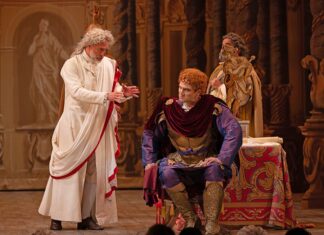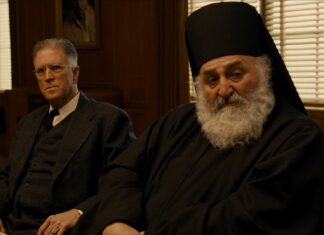By Gabriella Gage
Mirror-Spectator Staff
WATERTOWN — Kelly Stuart is not only a playwright; she is a fearless storyteller who immerses herself in the complexities of the human condition. Along with teaching courses at Columbia’s School for the Arts (SoA), Stuart has traveled to Turkey nine times to explore various facets of life there — culture, music, struggle and hope.
The Armenian Dramatic Arts Alliance (ADAA) recently awarded Stuart the third Biennial William Saroyan Prize for Playwriting for “Belonging to the Sky,” a lyrical duet of monologues by Sabiha Gokçen (Ataturk’s adopted daughter) and assassinated journalist Hrant Dink. The $10,000 grand prize was announced and presented at ADAA’s awards event on December 8 at the Pasadena Playhouse.
Stuart’s own creative journey and career as a playwright began at the University of Laverne in California where she studied music and theater. As a student, she had the opportunity to participate in the Padua Hills Playwrights Festival and assisted Cuban-American playwright, Irene Fornes, who would prove a great inspiration to Stuart as a young playwright.







